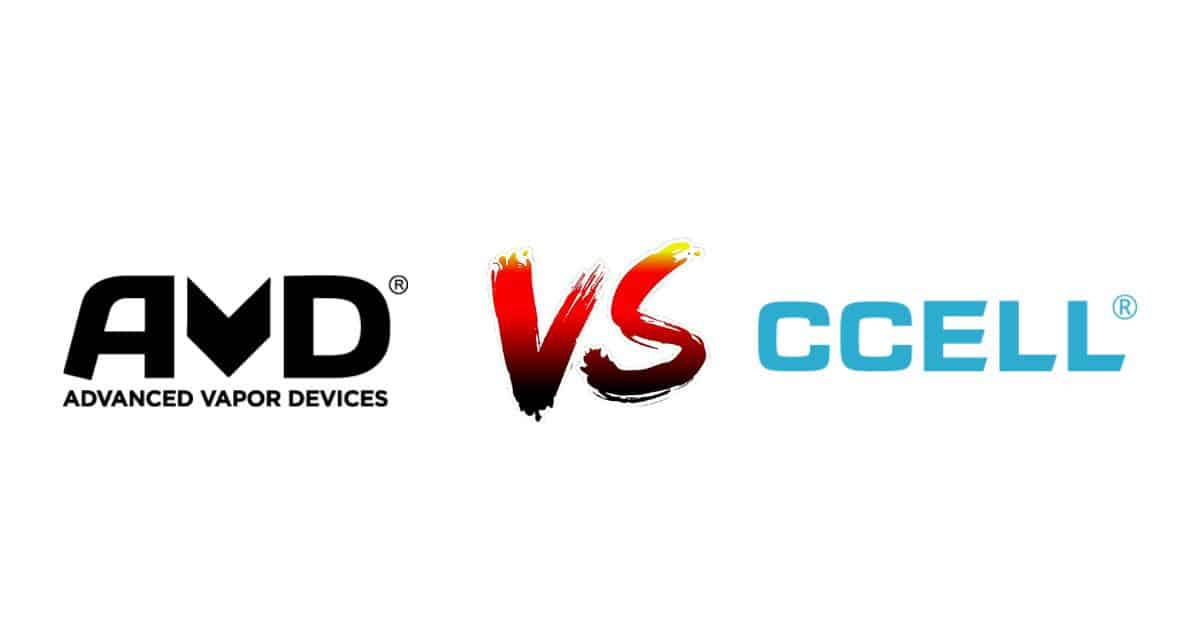There’s been a great deal of debate in the emerging cannabis industry about intellectual property (IP), and patents in particular.
Some have been hesitant to embrace this necessary component of doing business in budding industries, but the arguments in favor of protecting IP far outnumber those against. And regardless of one’s personal feelings, patent enforcement will only become more prominent as the industry develops.
IP can help brands protect their hard work, drive innovation, and create healthy competition.

For example, Shenzhen Smoore recently took 38 vape hardware brands to the International Trade Commission (ITC), including Advanced Vapor Devices (AVD), the Blinc Croup, and GreenTank, claiming patent infringement related to their ceramic core cartridges.
Viewing the claims as a tactic to drain competitor resources, AVD led a group of respondents to join forces and fight back. Despite being competitors, the companies worked together to defend against the claims.
The team engaged expert advisors and dived deep into the patent law rabbit hole. The legal efforts paid off—potentially changing the perception of IP in the cannabis space.
The ITC ruled that the respondents’ products did not infringe on the other patents. They found that Smoore failed to establish a “domestic industry,” which is required for ITC claims since such proceedings are designed to protect the US’s interest in fair trade.
While Smoore may have failed at its attempt to protect its patents, the case highlighted the need for companies to invest in protection of their IP.
The benefits of IP: helping companies and consumers alike
The lawsuit may appear as an example of how some players could use intellectual property to reduce competition in cannabis. But the truth is that when done correctly, IP can offer many advantages for both companies and consumers.
IP encourages innovation. When a new patent-protected device or technology debuts, competitors who are unable to simply copy that device must ramp up R&D to compete. This increases creativity and ultimately ensures that consumers get the latest and best the market has to offer.
Not to mention the excitement a brand’s product team will have introducing a game-changing product to the world. Healthy competition is good for consumers and helps differentiate brands from one another.
Of course, there are also times when defending those innovations is necessary. If a company creates something truly revolutionary, the imitators will spring into action quickly—potentially taking profits with them. Robust IP will ensure credit is given where credit is due, and court cases often set precedents.
Patents can also help the cannabis industry thrive by keeping the sharks from other industries at bay. There’s no doubt that the market is growing, and players in big agriculture, the pharmaceutical space, and other adjacent industries want to stake their claim.

An easy way for them to do so is through obtaining broad IP protection in a market they still may not wish to enter directly. If companies from these industries are unimpeded in gobbling up cannabis-related IP, cannabis companies and consumers may soon find their options are limited.
Imagine for a second, that a non-cannabis company obtains a broad patent on a new, clean and efficient extraction method. They may then charge a license fee to use the technology, extracting cash out of already struggling cannabis operators and raising costs for consumers.
In other words, people outside the cannabis industry will benefit financially, while those within will suffer. And while there’s nothing inherently wrong about obtaining and enforcing this patent, it would be great to see cannabis companies that have put so much on the line already position themselves to defend against this sort of tactic.
“Intellectual property must be viewed by cannabis companies as a capital expenditure or as an investment—not an operating cost. By investing in IP, brands cement their place in the market of tomorrow by ensuring their innovations are protected for years to come.” -Doug Fischer, General Counsel AVD
By securing their IP, cannabis operators secure their legacies. Strong patents stand the test of time, and may hold their place for generations.
What lies ahead
Headwinds in the broader economy and within the cannabis industry can make it hard to invest in IP today. The R&D cycle can be slow and it often takes months or years to innovate and be awarded patents on new inventions. But it’s critical to act now.
As discussed above, non-cannabis companies are already procuring significant IP related to the industry. And as we inch closer to federal policy reform, more and more non-cannabis companies will feel free to pursue IP in the space.
Even as cash remains tight, cannabis companies should look hard to find ways to invest in IP now to position themselves for the entry of CPG, pharmaceutical, and agricultural companies to enter the market.
Enjoyed that first hit? Come chill with us every week at the Friday Sesh for a freshly packed bowl of the week’s best cannabis news!
- Delaware’s Recreational Cannabis Market Finally Set to Launch After Years of Challenges
- Excise Tax Increase to 19% and Its Impact on California Retailers
- Nebraska’s Governor Approves Emergency Medical Cannabis Regulations
- We Must Advocate for Fair and Accurate Marijuana Impairment Testing Policies
- The Global Roots of Plant Medicine: Why Cannabis Has Always Been Part of the Plan
- Military Construction and Veterans Affairs Bill Amendments Could Change Medical Marijuana and MDMA-Assisted Therapy Options for Veterans














